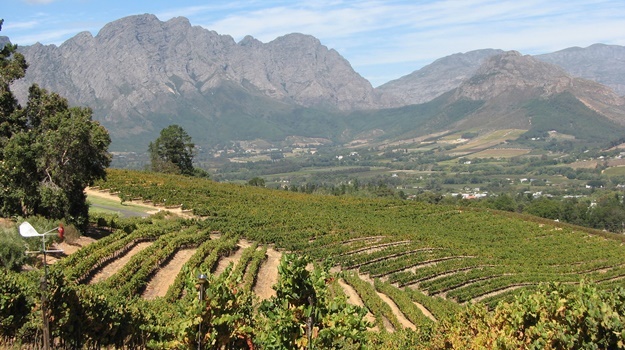
- The current liquor sales ban is the fourth that the government has imposed on the industry since the beginning of the country’s coronavirus lockdown in March 2020.
- The latest ban will add to the 19 weeks of revenue the industry has lost in the past 15 months.
- The Western Cape MEC for Agriculture, Ivan Meyer, requested that amendments be made to the level 4 Covid-19 lockdown regulations to all allow for the transportation of wine.
Wine producer body Vinpro on Tuesday launched an urgent interim interdict application in the Western Cape High Court against the ban on its products in the Western Cape, as South Africa enters the second day of its level 4 coronavirus lockdown.
"Vinpro has launched an urgent interim interdict application today to lift the ban on the sale of wine in the Western Cape - in a bid to seek interim relief for wine businesses," the body said.
The current sales ban is the fourth that government has imposed on the industry since the beginning of the country’s lockdown in March 2020. The wine sector had initially approached the court in January this year, but called off its bid for urgent relief when the third ban was lifted. It is now making its way back to court.
Vinpro managing director, Ricco Basson, said the latest ban will add to the 19 weeks of revenue the industry has lost in the past 15 months, and which has devastated the wine and tourism sectors, which employ more than 269 000 people.
"Although wine exports may continue, the industry exports less than 50% of annual production, with the other half sold on home soil. With no financial support from government for these businesses, their prospects, and that of employees, are extremely bleak," said Basson.
He added that more than 80% of the country’s 529 wineries are reliant on direct sales to customers.
"Vinpro is not saying restrictions are not justified when hospitals and particularly trauma units are under pressure. However, we believe that not only has the wrong level of government been dealing with the retail sale of liquor during the national state of disaster, but government has repeatedly implemented nationwide bans which are overbroad, unnecessary, unjustified and, indeed, counterproductive," he said.
The preliminary date for Vinpro's hearing to allow the sale of wine is Friday, 2 July.
In the meantime, Western Cape MEC for Agriculture Ivan Meyer requested that amendments be made to the level 4 Covid-19 lockdown regulations to all allow for the transportation of wine.
Meyer’s request comes as South Africa on Sunday entered a 14-day stretch of restrictions, which saw government imposing a ban on liquor sales throughout the country. The country's hospitals have been under significant pressure due to the third wave of the Covid-19 pandemic and government imposed the restrictions to curb its spread.
On Monday, Meyer said he wrote to Agriculture, Land Reform and Rural Development Minister Thoko Didiza requesting her assistance in addressing the challenges of the restrictions on the wine industry.
Wine makes up 6.5% of the Western Cape’s exports, making it the third-biggest export product.
Meyer asked that the regulations be amended to enable the sector to transport wine samples for international tourists leaving South Africa and for bottling and storage purposes.
He also requested that alcohol be allowed to be sold online for delivery to people’s homes. Meyer added that the amendments would protect the jobs of 45 610 production workers in the sector and support the livelihoods of 288 053 people.
Meyer’s letter comes as the South African Liquor Brand Owners' Association (Salba) asked the MAC to share the data it used when advising government to impose the current ban.
In the letter addressed to MAC chairperson Prof Koleka Mlisana, Salba’s chairperson, Sibani Mngadi, explained that the association required the information to prepare and engage with government and the National Coronavirus Command Council to revisit the ban.
"This decision puts at risk the livelihoods of at least a million people who rely on the alcohol value chain for an income and a pathway out of unemployment and poverty," he said.
